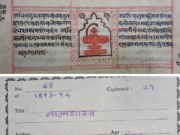The decision was notified by the finance ministry last week, people in the know told ET.
With this, it will become easier for people in India to procure medicines which are either not available in the country because they are patented, or are not being produced here due to technological barriers. “This will open doors to various such products and will benefit the Indian patient,” said an industry insider.
The government’s public procurement policy prohibits global tendering to source goods and services worth up to ‘200 crore as part of a strategy to bolster the domestic industry.
Among the 120 medicines for which global tenders can now be floated are anti-diabetic drug Dulaglutide; Evrysdi, which is used for treatment of spinal muscular atrophy; Fabrazyme, for fabry disease; Kadcyl, for breast cancer; Lemtrada, for multiple sclerosis; and Semaglutide, used for treatment of type-2 diabetes and obesity.
Also exempted are some vaccines, including the HPV (Human Papillomavirus) vaccine that can protect against cervical cancer, and pneumococcal vaccine, which protects against serious illnesses like pneumonia and meningitis, the people cited earlier said.According to the ministry, the relaxation will be valid till March 31, 2027, unless another order is issued in this regard. However, this easing of policy is subject to the approval of the secretary (coordination) of the finance ministry’s expenditure department. “The ministry of health and family welfare has requested to exempt procurement of 120 drugs. A general exemption has been granted,” the notice dated June 7 said.
The move follows a slew of meetings held in the Department of Pharmaceuticals in which stakeholders from both Indian and multinational companies participated, the people cited earlier said.



































